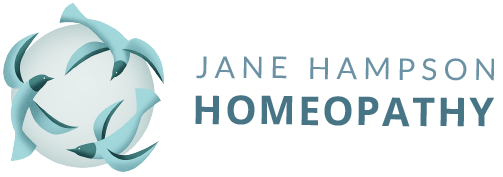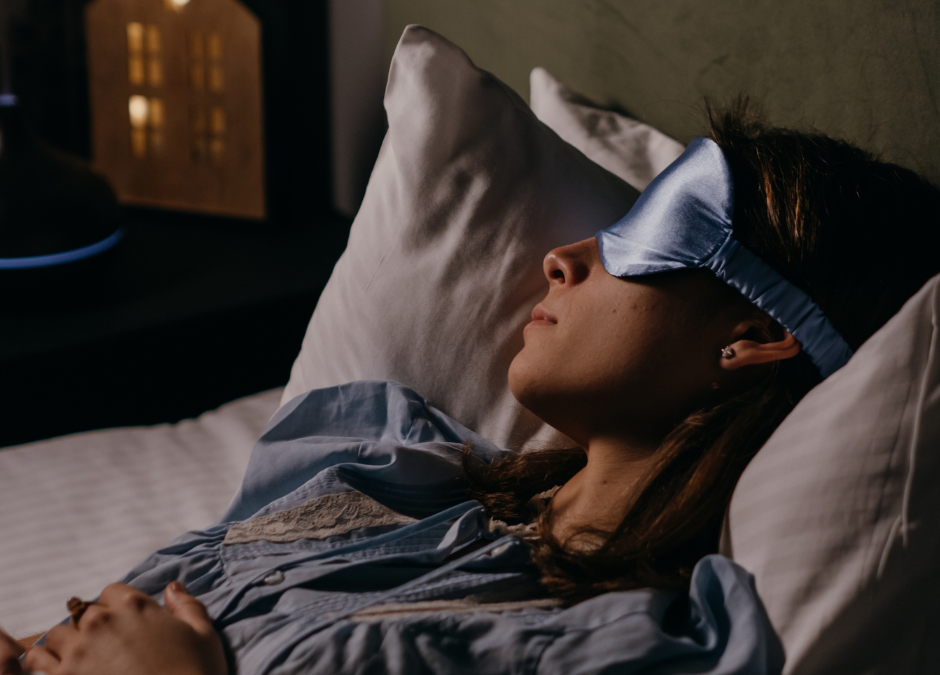Insomnia and Menopause
Sleep disorders affect around 40-60% of menopausal women and often begin during the perimenopause phase when oestrogen and progesterone start to fluctuate, and periods become irregular. Oestrogen is responsible for moving magnesium into our tissues, which is crucial for catalysing the synthesis of important sleep neurotransmitters including melatonin. Therefore, when oestrogen levels decline during perimenopause women can find it harder to fall asleep.
Stress and Anxiety
Sleep can be affected by stress at any time, not just menopause, but it’s good to understand why it is more prevalent during this time. During menopause the HPA axis becomes important – this is the connection between the hypothalamus, the pituitary gland, and the adrenal glands. The HPA axis produces cortisol to regulate stress response. The adrenal glands are small organs located on the top of each kidney and are responsible for producing hormones that regulate many functions including metabolism, blood pressure and stress response. As our ovaries stop producing oestrogen, the adrenal glands take over and become the only source of production of oestrogen. If the adrenal glands or HPA axis isn’t working optimally (usually due to long term stress and poor diet or illness) symptoms can occur such as fatigue, insomnia, weight gain, muscle issues and low mood – otherwise known as adrenal fatigue. These are all symptoms common with perimenopause and menopause, suggesting that if our adrenals are overworked already before we hit perimenopause, we’re more likely to struggle with insomnia.
The adrenal glands will also prioritise the release of cortisol (in response to stress) over the production of oestrogen, so if we are stressed or anxious, our oestrogen is likely drop even lower. When the HPA axis is disrupted, it can result in insomnia and other sleep disturbances, therefore, to improve sleep you need to look at many different factors with stress management being important.

Natural Treatments for Sleep
There are several lifestyle changes you can make as well as supplements and herbs you can take to help gain better sleep:
- Lavender – Using lavender oil and massaging on soles of the feet and on pulse points can help relax.
- Valarian root, Chamomile and ashwagandha are some of the herbs you can use. I find drinking a good ‘sleep’ tea with these herbs in hugely beneficial
- Take a good quality magnesium supplement
- Avoid Caffeine after lunchtime
- Do regular exercise
- Put down your phone and avoid screentime for at least an hour before bed
- Don’t work too late, this will stimulate your brain
- Cut down on or avoid alcohol
- Avoid napping during the day
- Develop a bedtime routine which cools you and lowers your stress
- Keep your room cool, with light bedclothes

Homeopathy for Sleep
Homeopathy can help with sleep issues by balancing hormones, reducing stress, and also dealing with any wider issues. It is therefore important for you to have a full consultation with a homeopath to assess all areas of your health. However, there are a few key homeopathic remedies specific for helping sleep:
Coffea Cruda
People needing this remedy will have over sensitive nerves, with pain, touch, noise and odours becoming intolerable. Overactivity of the mind at night is a key symptom, full of ideas and quick to act keeping them awake with irritability. Nervous sleeplessness is how to describe coffea, with mental activity where the person hears every sound, also after happy excitement.
Passiflora
Insomnia in the mentally worried and over-worked person. This remedy has a quieting effect on the nervous system. The individual needing this remedy will be restless and wakeful, often resulting from exhaustion.
Valeriana
Nervous restlessness particularly at menopause or at the time of period, cannot sit still. Often the person will be changeable – passing from highest joy to deepest grief. Impulse to move about with thoughts and mental symptoms coming on during rest, but stop when walking about. They may also fear the dark.
Avena Sativa
This remedy is made from oats and has an action on the brain and nervous system, with nervous exhaustion. A good remedy after acute illness if there is sleeplessness. Also nervous exhaustion from mental overwork or from worry or anxiety.
Nux Vomica
Much yawning with sleepiness in the evening or sleepless from rush of ideas. Waking too early and can’t go back to sleep, but eventually falls asleep then wakes feeling wretched. Nightmares and anxious dreams of being pursued by animals, with talking during sleep. People needing nux vomica may enjoy coffee and alcohol and may work too hard finding it difficult to switch off at night. Sleep will be light and easily broken, and mentally people can be irritable.
Arsenicum
A very deep acting remedy and useful for many different ailments and states. Individuals needing arsenicum will have disturbed, restless and anxious sleep. They’ll experience shocks on falling asleep with dreams of death or fear. Lots of yawning with stretching of limbs, often awakened by pains. Anxiety and fear of health is a key symptom of this remedy with frequent night waking with anxiety. They may also worry about all the jobs that need doing in the day or that they’ve not completed.
Cocculus
Sleeplessness from mental or physical exhaustion, with constant drowsiness especially after being up through the night looking after poorly children or caring for sick relatives. Also useful for those who have working shift patterns where they work at night. There is exhaustion accompanied by vertigo and dizziness, as if seasick. They’re exhausted but cannot get off to sleep.
Lachesis
Sleeplessness from mental irritation, especially after drinking alcohol. Sudden starting on falling asleep, very sleepy but cannot sleep. They have an overactive mind and can be worse during menopause. Wide awake and lively in the evening. Sleeplessness with burning of the soles of the feet. Disturbed by the least noise, with sleeplessness from anxiety about death. Worse for pressure of clothes especially around the neck, with skin feeling too tight. Better for open air and cold drinks. Not refreshed after sleep.
I hope this blog has helped you to find the information you need to navigate menopause symptoms naturally. It can seem daunting and confusing to see all the different homeopathic remedies together. If you’re feeling overwhelmed, then please do get in touch for a free 15 minute chat to find out how homeopathy can help you.
I’m now also offering a special bespoke Menopause Package which includes a full initial consultation and 2 follow up. It also includes information on diet, lifestyle and discounted Cytoplan supplements as well as a homeobotanical herbal blend. Please get in touch for more information.
You can also join our Facebook group – Homeopathy for Perimenopause and Menopause Symptoms for more information.


